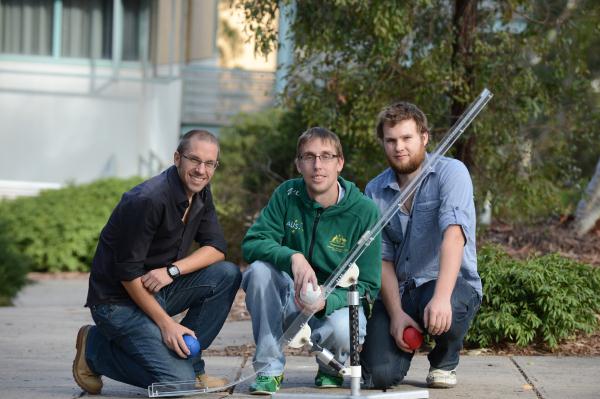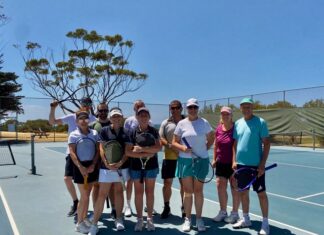By JOHN VAN KLAVEREN
DEAKIN University engineering students have used carbon fibre components and rapid prototyping to help Australian athletes compete for gold at the 2016 Rio Paralympics.
Engineering lecturer Dr Paul Collins said the first project, a ramp for the precise sport of boccia, had been completed.
Five of the ramps, designed by fourth-year engineering students Kris Plumb and Daniel Howard, will be used at Olympic qualifying events and the world championships later this year.
“The athletes were using old wooden ramps for a target game that requires millimetre perfect touch, so they were a long way behind other athletes when it came to competing,” he said.
Dr Collins said Deakin and Australian Paralympic Committee (APC) had signed a a memorandum of understanding on developing high-impact sports technologies for elite Paralympian athletes.
“We have several projects happening involving significantly upgraded equipment for elite Paralympic athletes,” Dr Collins said.
“We’re designing, engineering and prototyping up to pre-production scale equipment that will have a huge impact on how our athletes compete both here and overseas.”
APC pathway coordinator Paul Van Oosten said the agreement with Deakin provided a “huge” boost to Paralympic athletes.
“A ramp of this quality will provide an enormous boost to our BC3 athletes and better support their endeavours to qualify for the 2016 Rio Paralympic Games,” Mr Van Ossten said.
“Access to world-class equipment is paramount in this sport and the ramp being developed by Deakin certainly meets these criteria.”
Dr Collins said students were also working on a new hand cycle for top-10 world hand cyclist and London Olympian Stuart Tripp.
Final year engineering student Stefan Sens is redesigning the hand cycle from the ground up, using Deakin Engineering’s advanced materials and manufacturing resources.
Mr Tripp said the opportunity to work with Deakin would give him a competitive advantage in the lead-up to Rio 2016.
“This bike will be lighter utilising the best design and materials available, ultimately producing a better bike and better performance,” he said.
Dr Collins said projects were focused on research into materials, advanced manufacturing and sports technology with an impact on the broader community.









